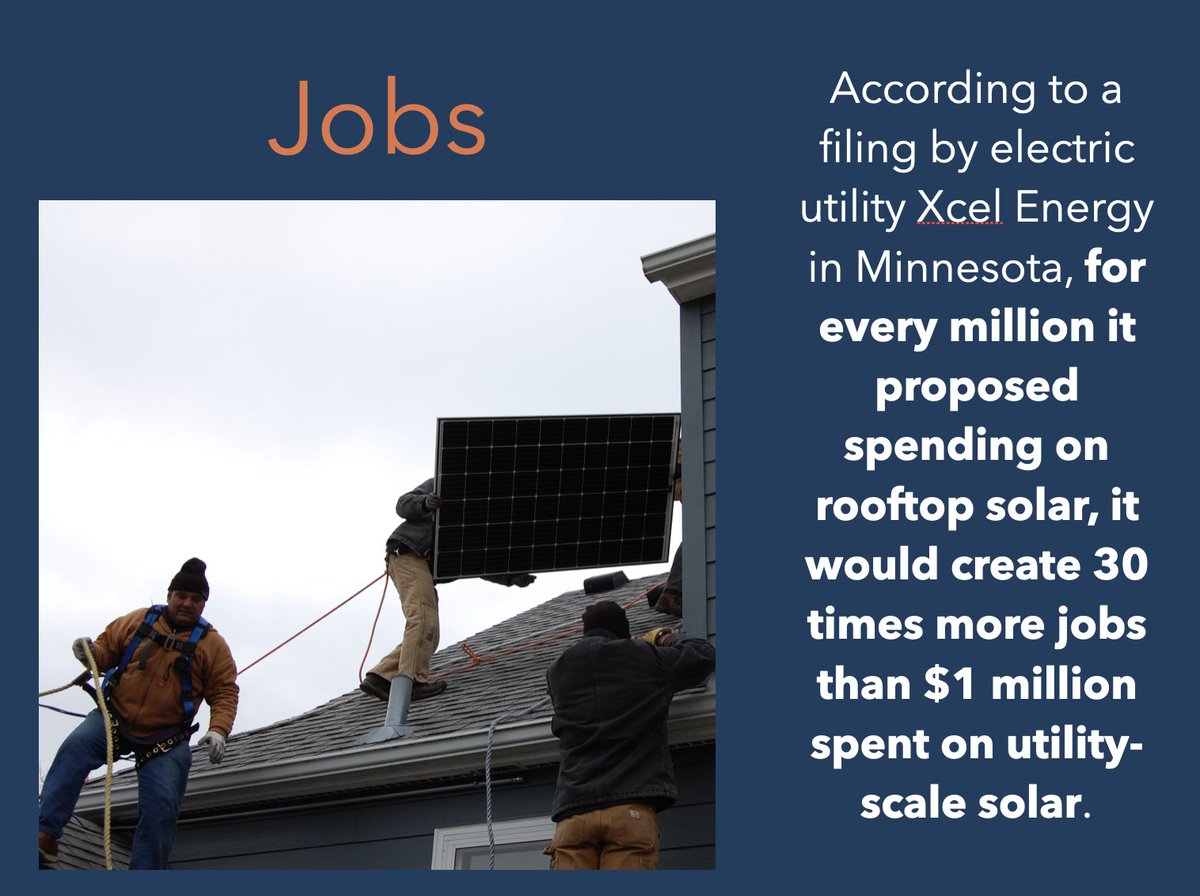American electricity customers are likely overpaying #monopoly electric utilities by $2 to $20 billion per year, says a white paper from UC Berkeley's Energy Institute at HAAS: google.com/url?sa=t&rct=j… 

Regulators charged with protecting the public interest have systematically failed to align the actual risk and reward of utility capital investments, allowing utilities to earn too much money on very low risk investments. Result: "a sizeable transfer from consumers to investors"
Here's a few highlights: "it is noteworthy that over recent years, utilities have earned sizeable regulated rates of return on their capital assets, particularly when set against the unprecedented low interest rate environment post-2008"
"A consistent trend of excess rates of return...regulators seem to follow some ad-hoc approaches that make them reluctant to set [return on equity] RoE below a nominal 10%"
For those not immersed in utility "rate of return" jargon, here's a quick primer: "with an installed capital base [power plants and power lines, etc.] worth $10 billion and a rate of return of 8%, the utility is allowed to collect $800 million per year from customers"
So, the higher the rate, the more money a utility collects. And collect they have! A few reasons why:
"Regulators face an information asymmetry with the utilities they regulate when determining whether costs are prudent and necessary" In other words, regulators are outgunned.
"Utilities have a clear incentive to request rate increases when their costs go up, but do not have much incentive to request a rate decrease when their costs go down" Duh, utility CEOs are rational.
An important note in the battle for local solar? "Excess regulated returns on equity will distort the incentives for utilities to invest in capital" (e.g. owning stuff themselves instead of supporting customer-owned stuff)
Other things considered and dismissed on the evidence: utility credit ratings (stable), debt/equity ratios (same), market risk premium (actually lower).
Also left out? Utilities that haven't had rate cases recently @SimonMahan So over-earners that don't face regulators regularly aren't even in this analysis!
And guess what? Part of your overpayment to a monopoly utility is likely due to your regulators' fascination with round numbers! 

The authors provide a range of potential overpayment, from $2 to $20 million, but it's worth noting that the low end is based on an assumption about utility capital costs that, if viewed historically, would suggest utilities did earn enough to cover costs in the 1980s and 90s.
As the authors note, "This seems implausible given the large capital expenditures the industry has continued to engage in over the last four decades"
Here's a great closer: "it is striking that other countries are able to attract sufficient investment in their gas and electric utilities while guaranteeing lower regulated returns than are available in the US context" Translation: "suckers!"
This isn't a paper addressed to regular folks, but it has MAJOR implications for utility bills. If you do clean energy and climate policy work, it matters, especially when newspapers write this about clean energy laws:
https://twitter.com/johnffarrell/status/1624841254537158656
Residential customers use about one-third of US electricity. At the midpoint estimate of $10 bil. in excess costs, it means each electric customer is overcharged by about $75 per year just to pad utility shareholder pockets.
#Monopoly power is costly to consumers, which is why we need to give folks better options to manage their bills (like solar!) when their regulators fail.
@threadreaderapp unroll
• • •
Missing some Tweet in this thread? You can try to
force a refresh









